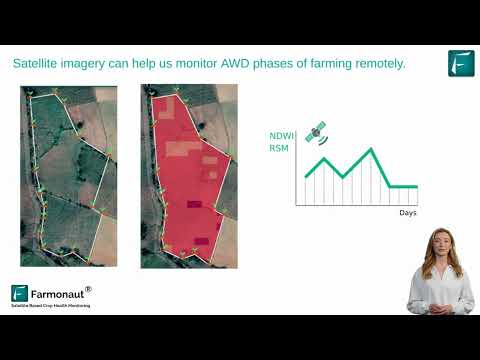Empowering Canadian Women in Agriculture: 7 Key Strategies for Success and Inclusivity in Farming
“Canadian women in agriculture are focusing on 7 key strategies for success and inclusivity in farming.”
In the ever-evolving landscape of Canadian agriculture, women are playing an increasingly vital role in shaping the future of farming. As we delve into the challenges and opportunities facing women in this sector, it’s crucial to explore the strategies that can lead to greater success and inclusivity. In this comprehensive blog post, we’ll examine seven key areas where women in agriculture are seeking change and recognition, offering insights into how these strategies can transform the industry.
1. Innovative Tax Strategies for Women in Agriculture
One of the most pressing issues facing women in Canadian agriculture is the need for more equitable and innovative tax strategies. As we navigate the complex world of farm financial management, it’s essential to consider how tax policies can be tailored to support and empower female farmers.
- Current Challenges: Many existing tax structures don’t adequately account for the unique circumstances of women in farming, such as balancing childcare responsibilities with agricultural work.
- Proposed Solutions: Implementing gender-responsive tax policies that recognize the multifaceted roles of women on farms, including provisions for childcare expenses and flexible income splitting options.
By addressing these tax concerns, we can create a more level playing field for women in agriculture, enabling them to reinvest in their farms and grow their businesses more effectively.

2. Responsible Farm Lending Practices
Access to capital is crucial for any farming operation, but women often face unique barriers when it comes to securing loans and financial support. Responsible farm lending practices are essential for fostering a more inclusive agricultural sector.
- Current Challenges: Women may encounter bias in lending decisions or lack the collateral traditionally required for farm loans.
- Proposed Solutions: Developing gender-sensitive lending criteria, offering financial literacy programs tailored to women farmers, and creating mentorship opportunities with successful female agricultural entrepreneurs.
By improving access to financial resources and support, we can empower more women to take control of their farming futures and contribute to the growth of Canadian agriculture.
3. Succession Planning for Inclusive Farm Futures
Succession planning is a critical aspect of ensuring the longevity and success of family farms. However, traditional approaches to farm succession often overlook the potential of women to take on leadership roles.
- Current Challenges: Outdated assumptions about gender roles in farming can limit opportunities for women in succession planning.
- Proposed Solutions: Promoting gender-neutral succession planning that focuses on skills, interest, and commitment rather than traditional gender roles. Encouraging open family discussions about farm succession that include all potential heirs.
By fostering inclusive succession planning, we can ensure that the next generation of Canadian farms benefits from diverse leadership and perspectives.
4. Embracing Sustainable Farming Practices
Sustainability is at the forefront of modern agriculture, and women are often at the vanguard of adopting and promoting environmentally friendly farming practices.
- Current Challenges: Limited recognition of women’s contributions to sustainable agriculture and barriers to accessing resources for implementing eco-friendly practices.
- Proposed Solutions: Increasing funding and support for women-led sustainable farming initiatives, promoting knowledge sharing networks focused on ecological agriculture, and recognizing women’s leadership in environmental stewardship.
By championing sustainable farming practices, women in agriculture are not only contributing to the health of our planet but also securing the long-term viability of Canadian farms.
5. Advancing Agricultural Education and Training
Education and training play a crucial role in empowering women in agriculture. By expanding access to agricultural knowledge and skills development, we can foster a new generation of confident and capable female farmers.
- Current Challenges: Limited representation of women in agricultural education programs and lack of tailored training opportunities that address the specific needs of female farmers.
- Proposed Solutions: Developing mentorship programs that connect experienced female farmers with newcomers, creating scholarships and grants specifically for women in agriculture, and integrating gender-inclusive perspectives in agricultural curricula.
Investing in agricultural education and training for women not only benefits individual farmers but also contributes to the overall innovation and productivity of the Canadian agricultural sector.
“Addressing energy costs, childcare, and financial management challenges can increase women’s participation in agriculture.”
6. Innovative Agricultural Business Strategies
In today’s competitive agricultural landscape, developing effective business strategies is essential for success. Women in farming are bringing fresh perspectives and innovative approaches to agricultural entrepreneurship.
- Current Challenges: Limited access to networks and resources that support business development, as well as persisting stereotypes about women’s roles in farm management.
- Proposed Solutions: Establishing women-focused agricultural business incubators, providing targeted marketing and branding support for women-led farms, and creating platforms for showcasing successful female agricultural entrepreneurs.
By fostering innovative business strategies, we can help women farmers diversify their operations, increase profitability, and adapt to changing market conditions.

7. Promoting Inclusive Decision-Making in Agriculture
Inclusive decision-making is crucial for creating a more equitable and diverse agricultural sector. By ensuring that women’s voices are heard and valued in all aspects of farming, we can drive positive change and innovation.
- Current Challenges: Underrepresentation of women in agricultural leadership positions and decision-making bodies, leading to policies and practices that may not fully consider women’s perspectives.
- Proposed Solutions: Implementing quotas for female representation in agricultural boards and committees, providing leadership training specifically for women in agriculture, and creating safe spaces for women to share their experiences and ideas.
By promoting inclusive decision-making, we can harness the full potential of Canada’s agricultural workforce and create a more resilient and innovative farming sector.
The Role of Technology in Empowering Women in Agriculture
As we explore strategies for empowering women in Canadian agriculture, it’s important to highlight the transformative role that technology can play. Innovative solutions like those offered by Farmonaut are making precision agriculture more accessible and affordable for farmers of all scales.
Farmonaut’s satellite-based farm management solutions provide valuable tools for crop health monitoring, resource management, and data-driven decision-making. These technologies can be particularly beneficial for women farmers looking to optimize their operations and compete in a challenging market.
Key benefits of technology for women in agriculture include:
- Real-time crop health monitoring for informed decision-making
- AI-driven advisory systems for personalized farm management strategies
- Efficient resource management tools to reduce costs and improve sustainability
- Access to data and insights that can level the playing field in agricultural operations
By leveraging these technological advancements, women in Canadian agriculture can enhance their farm productivity, reduce risks, and make more informed business decisions.
Addressing Energy Costs and Childcare Challenges
Two significant challenges that disproportionately affect women in agriculture are rising energy costs and access to childcare. These issues can have a substantial impact on farm profitability and women’s ability to participate fully in agricultural activities.
Energy Costs in Farming
The increasing cost of fuel and electricity poses a significant challenge for all farmers, but it can be particularly burdensome for women-led operations that may be working with tighter margins.
- Challenges: High energy costs can limit investment in new equipment and technologies, reducing farm efficiency and competitiveness.
- Solutions: Promoting renewable energy adoption on farms, providing grants for energy-efficient equipment upgrades, and offering education on energy management strategies.
Childcare in Rural Communities
The lack of accessible and affordable childcare in rural areas can be a significant barrier to women’s full participation in agriculture.
- Challenges: Limited childcare options in rural areas can force women to choose between active farm management and family responsibilities.
- Solutions: Developing community-based childcare initiatives, offering tax incentives for on-farm childcare facilities, and promoting flexible work arrangements in agricultural businesses.
By addressing these critical issues, we can remove significant barriers to women’s success in agriculture and promote more inclusive and family-friendly farming practices.
The Importance of Communication and Equal Opportunities
Effective communication and equal opportunities are fundamental to fostering prosperous family farms and an inclusive agricultural sector. As we work towards empowering women in Canadian agriculture, it’s crucial to focus on these key areas:
Promoting Open Dialogue
- Encouraging family discussions about farm roles and responsibilities
- Creating forums for women to share experiences and best practices
- Facilitating mentorship programs that connect experienced female farmers with newcomers
Ensuring Equal Access to Resources
- Providing equal opportunities for training and skill development
- Ensuring fair distribution of farm assets and decision-making power
- Promoting gender-neutral policies in agricultural organizations and institutions
By prioritizing communication and equal opportunities, we can create a more supportive environment for women in agriculture, leading to more successful and inclusive farming practices across Canada.
Leveraging Technology for Farm Financial Management
Effective financial management is crucial for the success of any farming operation. For women in agriculture, leveraging technology can provide powerful tools for budgeting, forecasting, and making informed financial decisions.
Key advantages of technology in farm financial management include:
- Real-time tracking of expenses and income
- Advanced forecasting tools for crop yields and market prices
- Integration with farm management software for holistic decision-making
- Simplified reporting for tax purposes and loan applications
By embracing these technological solutions, women in agriculture can gain greater control over their farm finances, make data-driven decisions, and build more resilient and profitable operations.
Explore Farmonaut’s solutions:
Strategies for Empowering Canadian Women in Agriculture: A Comprehensive Overview
| Strategy | Current Challenges | Proposed Solutions |
|---|---|---|
| Innovative Tax Strategies | Inequitable tax structures; lack of recognition for diverse roles | Gender-responsive tax policies; provisions for childcare expenses |
| Responsible Farm Lending Practices | Gender bias in lending; lack of collateral | Gender-sensitive lending criteria; financial literacy programs |
| Inclusive Succession Planning | Traditional gender role assumptions | Gender-neutral planning; open family discussions |
| Sustainable Farming Practices | Limited recognition of women’s contributions | Funding for women-led initiatives; knowledge sharing networks |
| Agricultural Education and Training | Underrepresentation in programs; lack of tailored training | Mentorship programs; scholarships for women in agriculture |
| Innovative Business Strategies | Limited access to resources and networks | Women-focused business incubators; targeted marketing support |
| Inclusive Decision-Making | Underrepresentation in leadership positions | Quotas for female representation; leadership training |
The Global Impact of Empowering Women in Agriculture
While our focus has been on Canadian agriculture, it’s important to recognize that empowering women in farming has global implications. As we implement strategies to support women in Canadian agriculture, we contribute to a worldwide movement towards more inclusive and sustainable farming practices.
Global benefits of empowering women in agriculture include:
- Increased food security and reduced poverty in rural areas
- More sustainable land and resource management practices
- Innovation in farming techniques and crop diversity
- Stronger, more resilient rural communities
By sharing knowledge and best practices internationally, we can amplify the positive impact of our efforts and contribute to a more equitable and sustainable global food system.
Conclusion: A Vision for the Future of Canadian Agriculture
As we’ve explored the seven key strategies for empowering women in Canadian agriculture, it’s clear that the path forward involves a combination of policy changes, technological adoption, and cultural shifts. By addressing tax strategies, lending practices, succession planning, sustainable farming, education, business approaches, and inclusive decision-making, we can create a more equitable and prosperous agricultural sector.
The future of Canadian farming is one where women play a central role in shaping agricultural policies, driving innovation, and leading successful farm operations. By embracing technology, promoting sustainable practices, and fostering inclusive environments, we can ensure that Canadian agriculture remains competitive and resilient in the face of global challenges.
As we move forward, it’s crucial that we continue to advocate for and implement these strategies, recognizing that the empowerment of women in agriculture benefits not only individual farmers but also strengthens our communities, enhances our food security, and contributes to a more sustainable world.
Together, we can build a Canadian agricultural sector that is truly inclusive, innovative, and prepared to meet the challenges of the 21st century.
FAQ: Empowering Canadian Women in Agriculture
Q: Why is it important to focus on empowering women in agriculture?
A: Empowering women in agriculture leads to increased productivity, innovation, and sustainability in the sector. It also promotes gender equality and strengthens rural communities.
Q: What are some of the main challenges faced by women in Canadian agriculture?
A: Key challenges include access to capital, gender bias in lending, limited representation in leadership roles, balancing farm work with family responsibilities, and lack of tailored educational and training opportunities.
Q: How can technology help women succeed in agriculture?
A: Technology can provide women with tools for efficient farm management, access to real-time data for decision-making, and platforms for connecting with markets and resources. Solutions like Farmonaut offer affordable precision agriculture tools that can level the playing field.
Q: What role do sustainable farming practices play in empowering women in agriculture?
A: Sustainable farming practices often align with women’s priorities for long-term land stewardship. By promoting these practices, women can lead in environmental conservation while also improving farm productivity and resilience.
Q: How can succession planning be made more inclusive for women?
A: Inclusive succession planning involves considering all family members equally based on their skills and interest, rather than traditional gender roles. It requires open family discussions and may benefit from professional guidance to ensure fairness.
For more information on how Farmonaut can support women in agriculture, visit our API Developer Docs or explore our API services.






